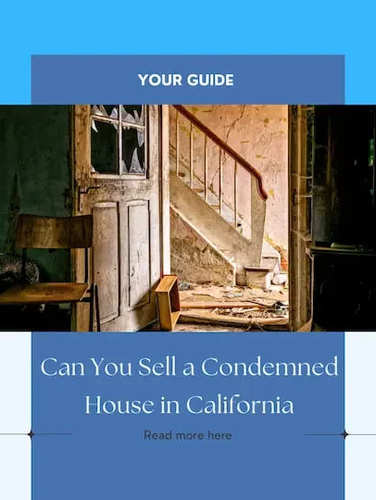Conversion in progress ...
Please wait while we generate your PDF
Probate Sale In California
Steps for Probate Sale in California
A probate sale in California occurs when a deceased person’s property is sold under court supervision to distribute assets to heirs or pay off debts. Unlike traditional home sales, probate sales follow specific legal procedures, often making the process more complex and time-consuming. Understanding how probate sales work, the challenges involved, and how to navigate them can help both sellers and buyers make informed decisions.
01
Step 1: Confirm the Property Is in Probate
Step 1A: Determine if the Decedent Left a Will or Trust
Trust: Property may avoid probate.
Will or No Will: Likely requires probate through the court.
Step 1B: File a Petition for Probate
Initiate probate with the local California Superior Court.
Once approved, the court appoints a personal representative (executor or administrator).
02
Step 2: Obtain Legal Authority to Sell
Step 2A: Request Full or Limited Authority Under IAEA
Under the Independent Administration of Estates Act (IAEA), petition for:
Full Authority (fewer restrictions, no court confirmation required)
Limited Authority (court oversight required)
Cash Buyer Tip: With full authority, you can sell directly to a cash buyer without court approval, speeding up the sale dramatically.
03
Step 3: Get the Property Appraised
A probate referee assigned by the court will appraise the property to determine its fair market value.
This is mandatory even if selling to a cash buyer.
04
Step 4: Choose How to Sell the Property
Close in 7–14 days
No repairs, clean-out, or agent commissions
Ideal for inherited homes, hoarder homes, or properties in poor condition
Buyers can work with heirs and attorneys directly
🏡 Option 2: List on the MLS With a Real Estate Agent
Requires cleaning, marketing, and showings
May fetch higher price but with longer timeline
Court confirmation may delay closing if under limited authority
✍️ Option 3: Sell at Public Probate Auction
Requires court confirmation and 10% deposit from buyers
Buyer must attend and outbid others in court (not ideal for sellers wanting a discreet sale)
05
Step 5: Notify Interested Parties and Heirs
Notify all heirs, beneficiaries, and other interested parties of the sale intent.
File a Notice of Proposed Action with the court (if full authority is granted).
If objections arise, a court hearing may be necessary.
06
Step 6: Accept the Offer
Cash Buyer:
Submit an offer with no loan, repair, or appraisal contingencies
Often include proof of funds and flexible closing terms
MLS/Agent:
Offer may require inspections, financing, and negotiation
Auction:
Highest bidder wins, but must meet court's approval process
07
Step 7: File for Court Confirmation (If Required)
Necessary if you only have limited authority or if:
Selling below 90% of appraised value
Buyer requests a court-confirmed sale
Cash Buyer Advantage: Buyers familiar with probate can waive contingencies and expedite this step.
08
Step 8: Close the Sale Through Escrow
The title company and escrow agent will:
Handle transfer of funds
Pay off liens or debts
Disburse proceeds to the estate
Cash Buyer Benefit: Faster and simpler escrow with no lender or inspection delays
















